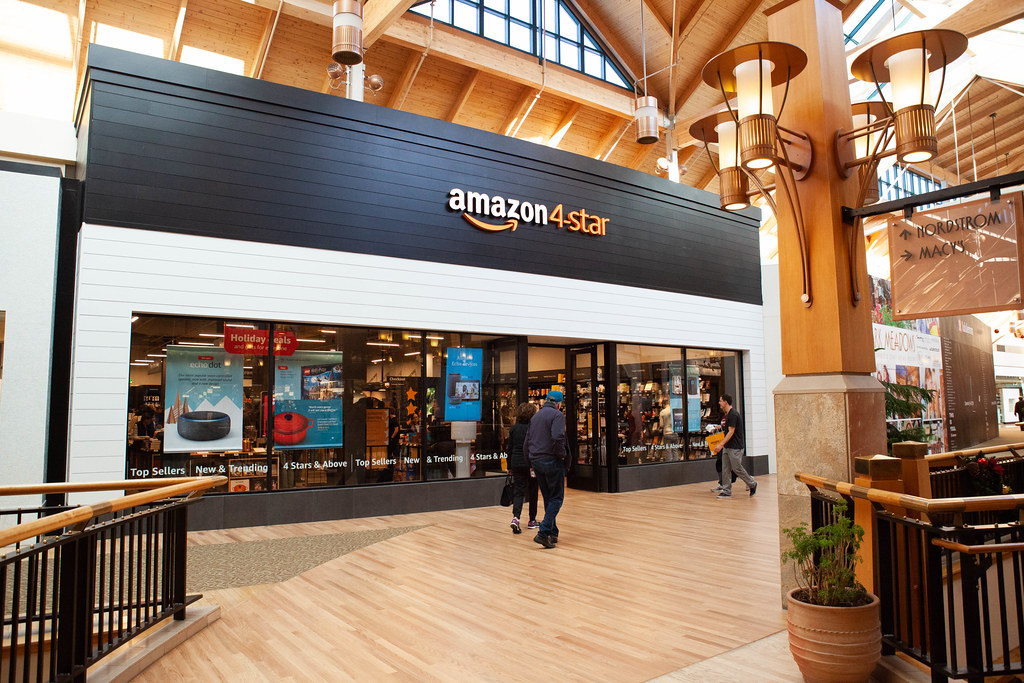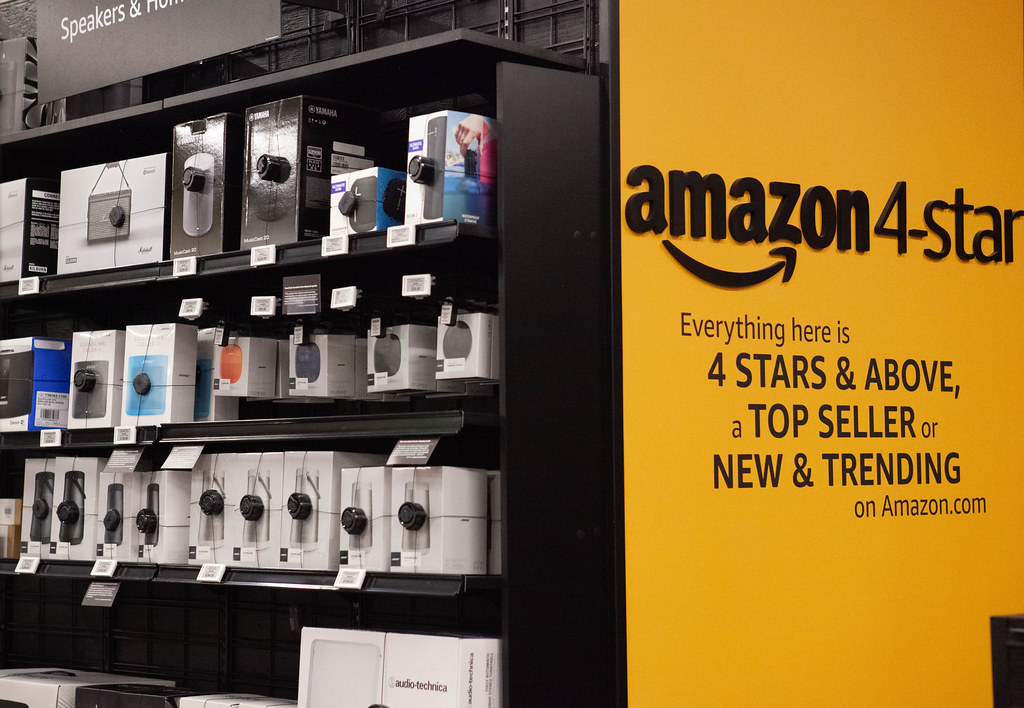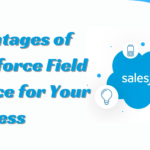Tips For Opening An Amazon Store
- 1 Tips For Opening An Amazon Store
- 1.1 Decide What You Want to Sell
- 1.2 Third-Party Amazon Fulfillment Services
- 1.3 Your Supplier Should Grow with You
- 1.4 Get All Your Business Ducks in a Row
- 1.5 Get into the Metrics
- 1.6 Optimize Your Content
- 2 Conclusion:
- 2.1 FAQs:
- 2.1.1 Do I need to be an ecommerce expert to start an Amazon store?
- 2.1.2 How do I handle logistics such as shipping and warehousing?
- 2.1.3 What legal considerations do I need to consider when starting an Amazon store?
- 2.1.4 How can I ensure my products stand out among competitors on Amazon?
- 2.1.5 Is it necessary to have a separate business website in addition to an Amazon store?
- 2.1.6 What metrics should I track to measure the success of my Amazon store?
In short:
- Product Selection: Choose marketable products aligned with your interests and explore niche opportunities on Amazon to stand out.
- Logistics: Consider third-party fulfilment services for efficient logistics handling, freeing up your time to focus on your business.
- Business Setup: Ensure a professional and polished setup for your Amazon store, including dynamic content, accurate product descriptions, and robust metrics tracking.
Are you interested in starting an online business? It can be daunting because there is so much to learn and do to get up and running. This often stops people from creating an ecommerce business. However, fortunately, there is an easy way to get set up and sell online.
Having a storefront on Amazon is how many people go into business. Amazon provides all the front and back-end setups to guide you. It can still be challenging because you want your store to stand out from the digital crowd. Any advantage can make you succeed.
Tips For Opening An Amazon Store
Of course, running a profitable Amazon store is complex. However, this serves as a guide to help you stand out from your competitors and reach your business goals faster. With that in mind, here are some tips for opening an Amazon store.
Decide What You Want to Sell
This can be not easy because what you want doesn’t necessarily translate into many sales. Finding what is marketable and what you like is critical because your heart will be more in it.
It is an excellent idea to search Amazon to see if your idea is currently being marketed there. This is because you can start the category and take control of the niche market. As your research shows some best sellers, consider adding that product to your line if you are into it. This is because you know it will sell.
Third-Party Amazon Fulfillment Services
You must fulfil them once you are up and running and getting sales. Amazon has an in-house program called Fulfillment By Amazon, which can handle some logistics for you. There are strict requirements for packaging and barcodes that may limit your free operation. Instead, it is best to fulfil outside of Amazon.
This is most effectively done through a third-party fulfilment company (3PF), which is set up to handle all your logistical needs. 3PL operations have the infrastructure, employees and shipping partners to take your product traffic flow effectively across town and the globe.
Amazon fulfillment services also take care of warehousing, picking, packing, shipping and even returns, keeping you in the loop throughout the process. This is how innovative business is done because it frees you and your staff to concentrate on your business.
Your Supplier Should Grow with You
You want to sell a lot of products on your Amazon store. Your logistics operation needs to be great, starting with procurement. Find a manufacturer, supplier or distributor that can handle growth. The last thing you want is to be successful and unable to keep up with demand.
Get All Your Business Ducks in a Row
You only have one chance to make a first impression, so you must look polished and professional before your store is live. There is a process to setting up your Amazon account, so take the time to do it right and don’t be in a rush to start selling.
Your site needs to be dynamic, with great pictures and accurate product descriptions. Ensure your brand is on everything and has an easy checkout link on every page.
Make sure to set up your Amazon store and your business website. This legitimizes your company and enhances your brand. Have all your business legalities sorted and ensure you have the right team to handle the workload.
Get into the Metrics
Amazon is set up to provide you with robust performance metrics to track everything accurately. This includes:
- Traffic sources
- Sales
- Site visits
They also give you valuable information about your target audience, including:
- Age
- Gender
- Marital status
- Income
- Education
With all this information, you can better target the right audience and build your store to cater to them.
Optimize Your Content
While you aim to have excellent product pictures that entice people to buy and your product line is famous on the merchant site, people won’t find you unless you set it up correctly. This means using keywords effectively to come up in searches.
Ensure all your content is searchable and relevant to what you are selling and what people enter into the search bar. Include this “language” everywhere, including headers, titles, descriptions and anywhere else where you place text. Be sure to stay within the content guidelines, but research keyword lists and match them to your product line.
Conclusion:
Starting an Amazon store can be a lucrative venture with the right approach. You can differentiate yourself and succeed in the competitive online marketplace by carefully selecting products, optimizing logistics, and setting up a professional storefront.
FAQs:
Do I need to be an ecommerce expert to start an Amazon store?
No, while some knowledge helps, Amazon provides tools and resources to guide you through the process, making it accessible to beginners.
How do I handle logistics such as shipping and warehousing?
Consider third-party fulfilment services that specialize in handling these aspects, allowing you to focus on other aspects of your business.
What legal considerations do I need to consider when starting an Amazon store?
Ensure you have all necessary business licenses and registrations in place, and familiarize yourself with Amazon’s policies and guidelines for sellers.
How can I ensure my products stand out among competitors on Amazon?
Optimize your product listings with compelling content and high-quality images, and use relevant keywords to improve visibility in search results.
Is it necessary to have a separate business website in addition to an Amazon store?
While not mandatory, having a dedicated business website can enhance your brand presence and credibility, providing additional avenues for customer engagement.
What metrics should I track to measure the success of my Amazon store?
Key metrics to monitor include traffic sources, sales performance, site visits, and demographic data of your target audience, which can help inform your marketing and sales strategies.


















